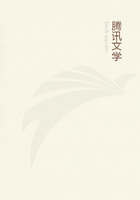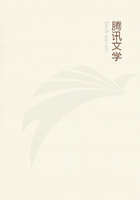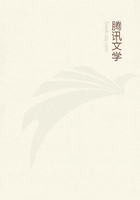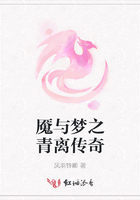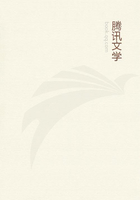Several lives of Hippocrates have been written. The one most frequently quoted is that of Soranus of Ephesus (not the famous physician of the time of Trajan), and the statements which he gives are usually accepted, viz., that he was born in the island of Cos in the year 460 B.C.; that he belonged to an Asklepiad family of distinction, that he travelled extensively, visiting Thrace, Thessaly, and various other parts of Greece; that he returned to Cos, where he became the most renowned physician of his period, and died about 375 B.C. Aristotle mentions him but once, calling him "the great Hippocrates." Busts of him are common; one of the earliest of which, and I am told the best, dating from Roman days and now in the British Museum, is here represented.
Of the numerous writings attributed to Hippocrates it cannot easily be determined which are really the work of the Father of Medicine himself. They were collected at the time of the Alexandrian School, and it became customary to write commentaries upon them; much of the most important information we have about them, we derive from Galen. The earliest manuscript is the "Codex Laurentianus" of Florence, dating from the ninth century, a specimen page of which (thanks to Commendatore Biagi) is annexed. Those of you who are interested, and wish to have full references to the various works attributed to Hippocrates, will find them in "Die Handschriften der antiken Aerzte" of the Prussian Academy, edited by Diels (Berlin, 1905). The Prussian Academy has undertaken the editorship of the "Corpus Medicorum Graecorum." There is no complete edition of them in English. In 1849 the Deeside physician, Adams, published (for the Old Sydenham Society) a translation of the most important works, a valuable edition and easily obtained. Littre's ten-volume edition OEuvres completes d'Hippocrate," Paris, 1839-1861, is the most important for reference. Those of you who want a brief but very satisfactory account of the Hippocratic writings, with numerous extracts,will find the volume of Theodor Beck (Jena, 1907) very useful.
I can only indicate, in a very brief way, the special features of the Hippocratic writings that have influenced the evolution of the science and art of medicine.
The first is undoubtedly the note of humanity. In his introduction to, "The Rise of the Greek Epic,"[21] Gilbert Murray emphasizes the idea of service to the community as more deeply rooted in the Greeks than in us. The question they asked about each writer was, "Does he help to make better men?" or "Does he make life a better thing?"Their aim was to be useful, to be helpful, to make better men in the cities, to correct life, "to make gentle the life of the world." In this brief phrase were summed up the aspirations of the Athenians, likewise illuminated in that remarkable saying of Prodicus (fifth century B.C.), "That which benefits human life is God." The Greek view of man was the very antithesis of that which St. Paul enforced upon the Christian world. One idea pervades thought from Homer to Lucian-like an aroma-- pride in the body as a whole. In the strong conviction that "our soul in its rose mesh" is quite as much helped by flesh as flesh by the soul the Greek sang his song--"For pleasant is this flesh."Just so far as we appreciate the value of the fair mind in the fair body,so far do we apprehend ideals expressed by the Greek in every department of life. The beautiful soul harmonizing with the beautiful body was as much the glorious ideal of Plato as it was the end of the education of Aristotle. What a splendid picture in Book III of the"Republic," of the day when ". . . our youth will dwell in a land of health, amid fair sights and sounds and receive the good in everything;and beauty, the effluence of fair works, shall flow into the eye and ear like a health-giving breeze from a purer region, and insensibly draw the soul from earliest years into likeness and sympathy with the beauty of reason." The glory of this zeal for the enrichment of this present life was revealed to the Greeks as to no other people, but in respect to care for the body of the common man, we have only seen its fulfilment in our own day, as a direct result of the methods of research initiated by them. Everywhere throughout the Hippocratic writings we find this attitude towards life, which has never been better expressed than in the fine phrase, "Where there is love of humanity there will be love of the profession." This is well brought out in the qualifications laid down by Hippocrates for the study of medicine."Whoever is to acquire a competent knowledge of medicine ought to be possessed of the following advantages: a natural disposition; instruction;a favourable position for the study; early tuition; love of labour; leisure. First of all, a natural talent is required, for when nature opposes, everything else is vain; but when nature leads the way to what is most excellent, instruction in the art takes place, which the student must try to appropriate to himself by reflection, becoming a nearly pupil in a place well adapted for instruction. He must also bring to the task a love of labour and perseverance, so that the instruction taking root may bring forth proper and abundant fruits." And the directions given for the conduct of life and for the relation which the physician should have with the public are those of our code of ethics today. Consultations in doubtful cases are advised, touting for fees is discouraged. "If two or more ways of medical treatment were possible, the physician was recommended to choose the least imposing or sensational; it was an act of 'deceit' to dazzle the patient's eye by brilliant exhibitions of skill which might very well be dispensed with. The practice of holding public lectures in order to increase his reputation was discouraged in the physician, and he was especially warned against lectures tricked out with quotations from the poets.

